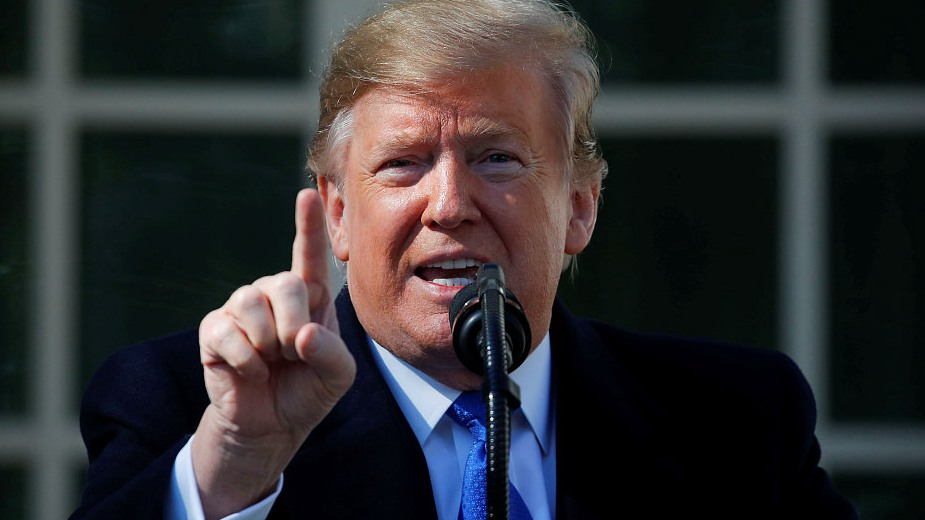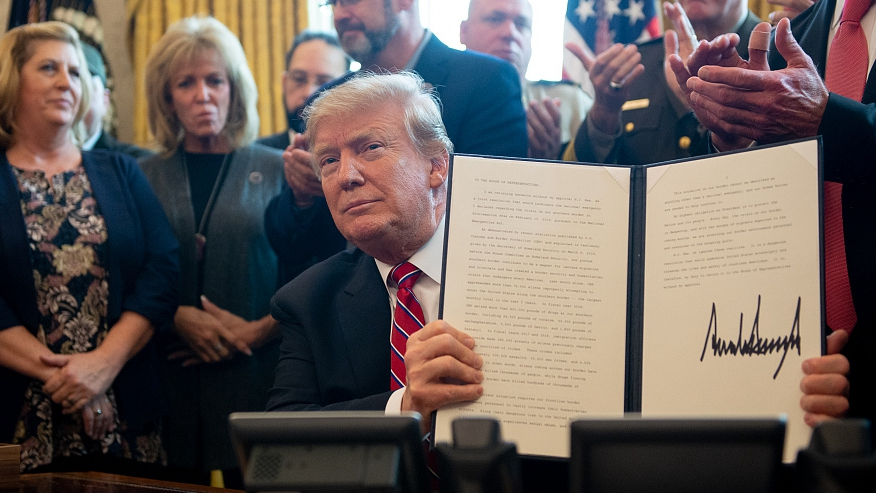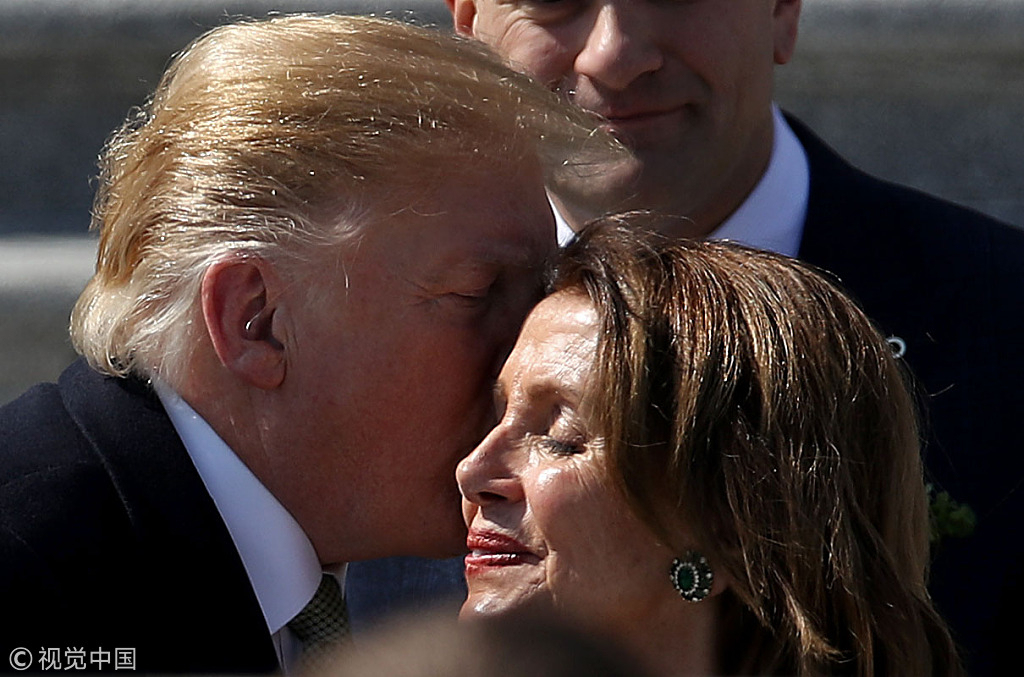
Opinion
22:14, 17-Mar-2019
The hardening of Trump's foreign policy
Updated
08:41, 18-Mar-2019
Tom Fowdy

Editor's note: Tom Fowdy, who graduated from Oxford University's China Studies Program and majored in politics at Durham University, writes about international relations focusing on China and the Democratic People's Republic of Korea. The article reflects the author's views, and not necessarily those of CGTN.
Throughout February and March, U.S President Donald Trump's foreign policy, particularly in regards to China and the DPRK, has taken a significantly harder line in approach to negotiations. First visible in the fall out of the summit in Hanoi, the Trump is now making a similar path in reference to the trade war.
Commentators and analysts expected the administration to make some kind of deal, only for Trump to pull away and then immediately harden his position.
We do not need to say more about what happened in Vietnam, but certainly, it seems to represent a trend. Rather than being pragmatic and flexible in the run-up to any potential agreements, the White House's foreign policy as a whole appears to be hardening.
If you look on social media, many are quick to square the blame with national security advisor John Bolton, known for his ultra-hawkish foreign policy strategies. Yet, as has also been discussed, this approach is reductionist at best and doesn't take into account wider phenomena.
Trump hardens his foreign policy because he is losing the game of domestic politics, with recent events taking its toll on the President.

U.S. President Donald Trump vetoes the bi-partisan congressional resolution that rejected his national emergency declaration on the U.S.-Mexico border, March 15, 2019. /VCG Photo
U.S. President Donald Trump vetoes the bi-partisan congressional resolution that rejected his national emergency declaration on the U.S.-Mexico border, March 15, 2019. /VCG Photo
Cornered by a Congress which is, in fact, forcing the President to be more than less hawkish on foreign policy and desperately needing the support of Republican hardliners, the President is finding his scope to offer more conciliatory deals reduced, lest he becomes the target of accusations he is selling out America. Such is said, the story of the U.S political system as a whole.
Trump's domestic political standing is fragile. Since December last year, the President's credibility has been severely diminished by a war with Congress he is losing. The Democrat takeover of the House of Representatives is an important turning point.
Over the issue of his wall, a month-long government shutdown from December to January, combined with the widely criticized use of emergency powers in an attempt to build it, have diminished what is left of the President's capability. In addition, progress in the Mueller probe and the Michael Cohen hearing are also taking their toll. In all regards, the President is now on the losing side of a political conflict which is diminishing and weakening his own agenda.
How does this connect to foreign policy? Trump's foreign policy ideas have long irked the Washington community due to his pursuit of "non-interventionism" and willingness to make deals with leaders who are perceived as being contrary to American values.

U.S. President Donald Trump kisses Speaker of the House Nancy Pelosi while departing the U.S. Capitol following a St. Patrick's Day celebration, March 14, 2019, Washington. /VCG Photo
U.S. President Donald Trump kisses Speaker of the House Nancy Pelosi while departing the U.S. Capitol following a St. Patrick's Day celebration, March 14, 2019, Washington. /VCG Photo
Because of this, Congress has taken a critical position whereby it is, in fact, more hawkish than the President himself. This is a phenomenon that crosses partisan lines. On the matter of China and the DPRK, both parties have taken very assertive, tight-knit positions and sought to raise the bar on what Trump sought to obtain from any agreement, criticizing any potential agreement as too generous. With both states continually vilified as adversaries by the political mainstream, the scope for accusations of betrayal or appeasing a "threat" is significantly higher.
In this context, the President is placed under continuing pressure to be not only tougher in his foreign policy approach but to also achieve tangible results which will satisfy the other actors around him in America's system. He needs the support of Republicans whilst also fighting a democrat narrative that he is unfit to lead the country, something foreign policy can easily tie into.
As a result, the shift towards more politically turbulent times for Trump, as well as the emergence of 2020 on the horizon, meaning that his willingness to make deals with these "adversarial" countries has now reduced.
For the sake of his political face and success in the United States, he is normatively constrained towards making tougher demands and appearing firm, than giving in so easily. For Pyongyang and Beijing, the timing and context have been simply unlucky.
In summary, American politics is a complex game between the President and Congress, one which involves a struggle for influence over the agenda and a constant pull and push pattern of negotiations on an issue by issue basis.
In the polarized environment of today's United States, even more so. In any case, a complete inability to follow and check the sentiments of Congress can result in the political undoing of the Presidential administration and its credibility to lead, as Trump has discovered with his wall.
With domestic events turning for the worse for him, his foreign policy goals have as a direct consequence hardened.
(If you want to contribute and have specific expertise, please contact us at opinions@cgtn.com.)

SITEMAP
Copyright © 2018 CGTN. Beijing ICP prepared NO.16065310-3
Copyright © 2018 CGTN. Beijing ICP prepared NO.16065310-3